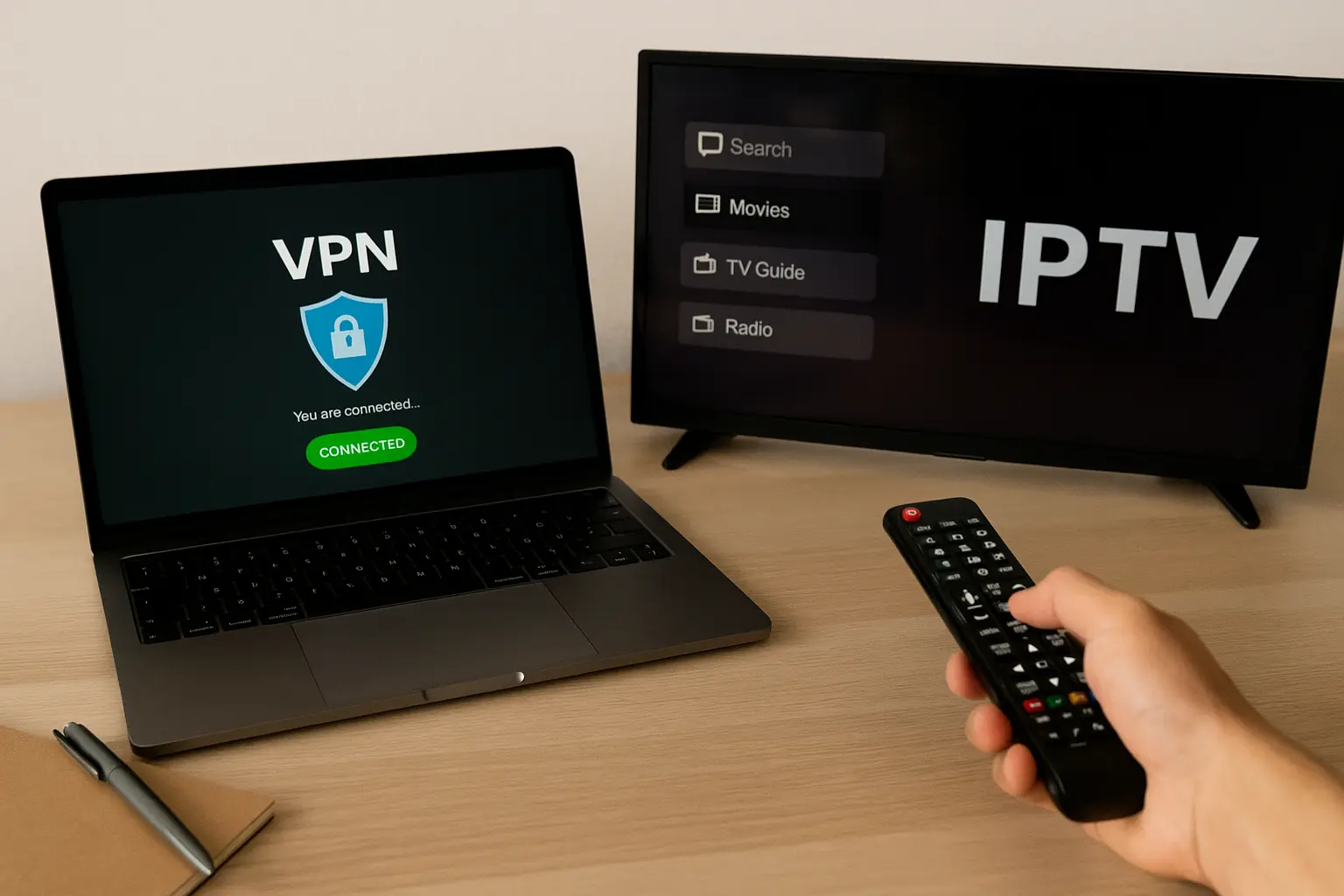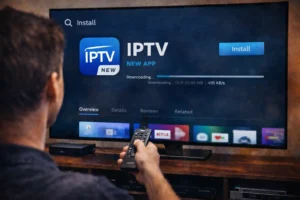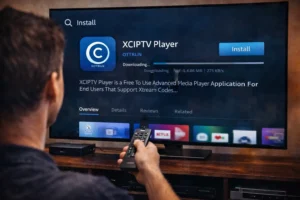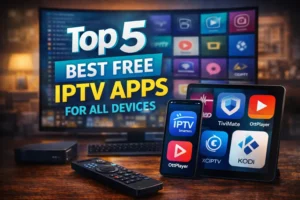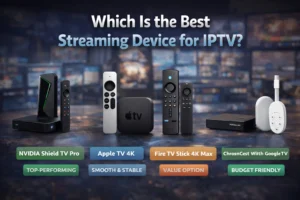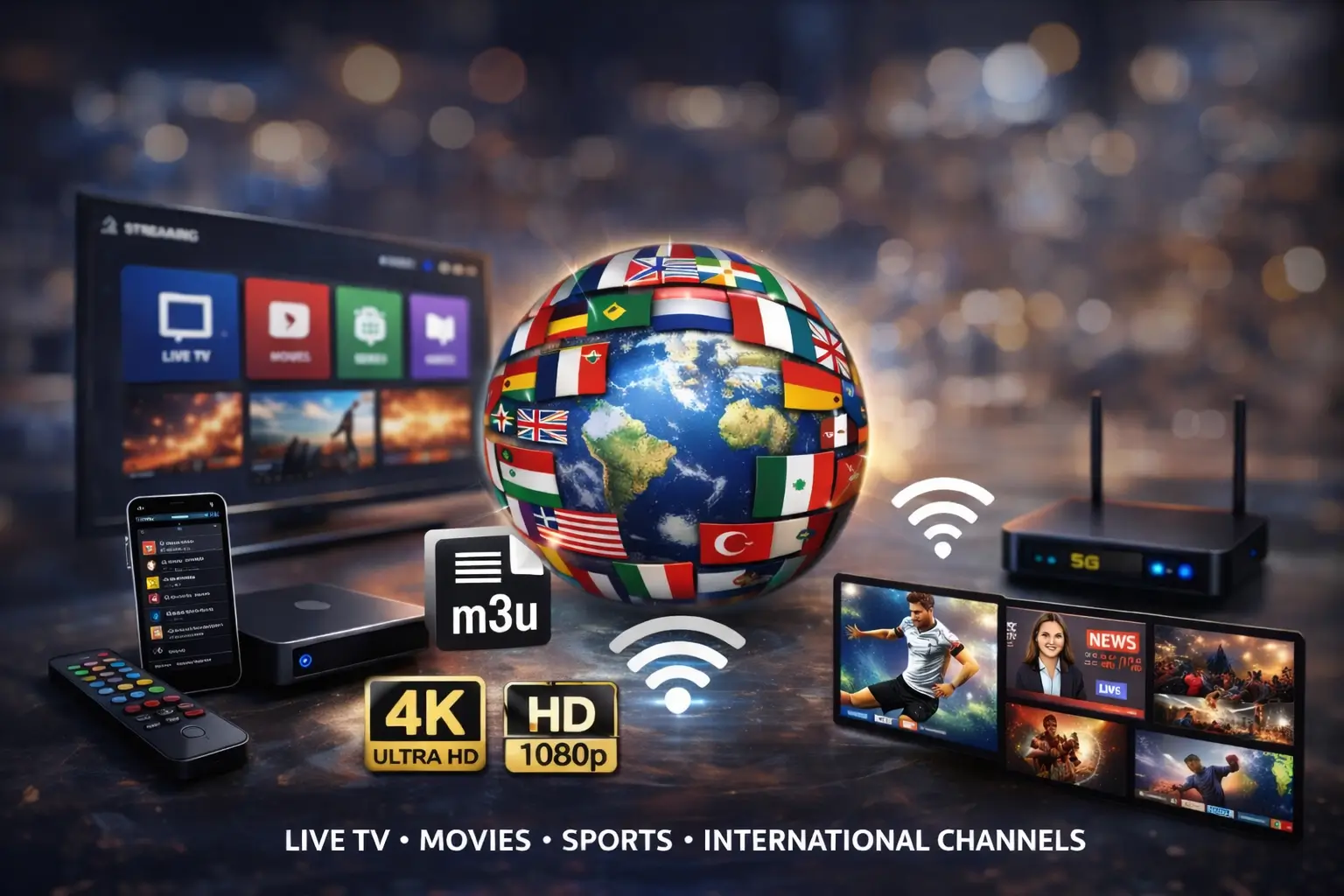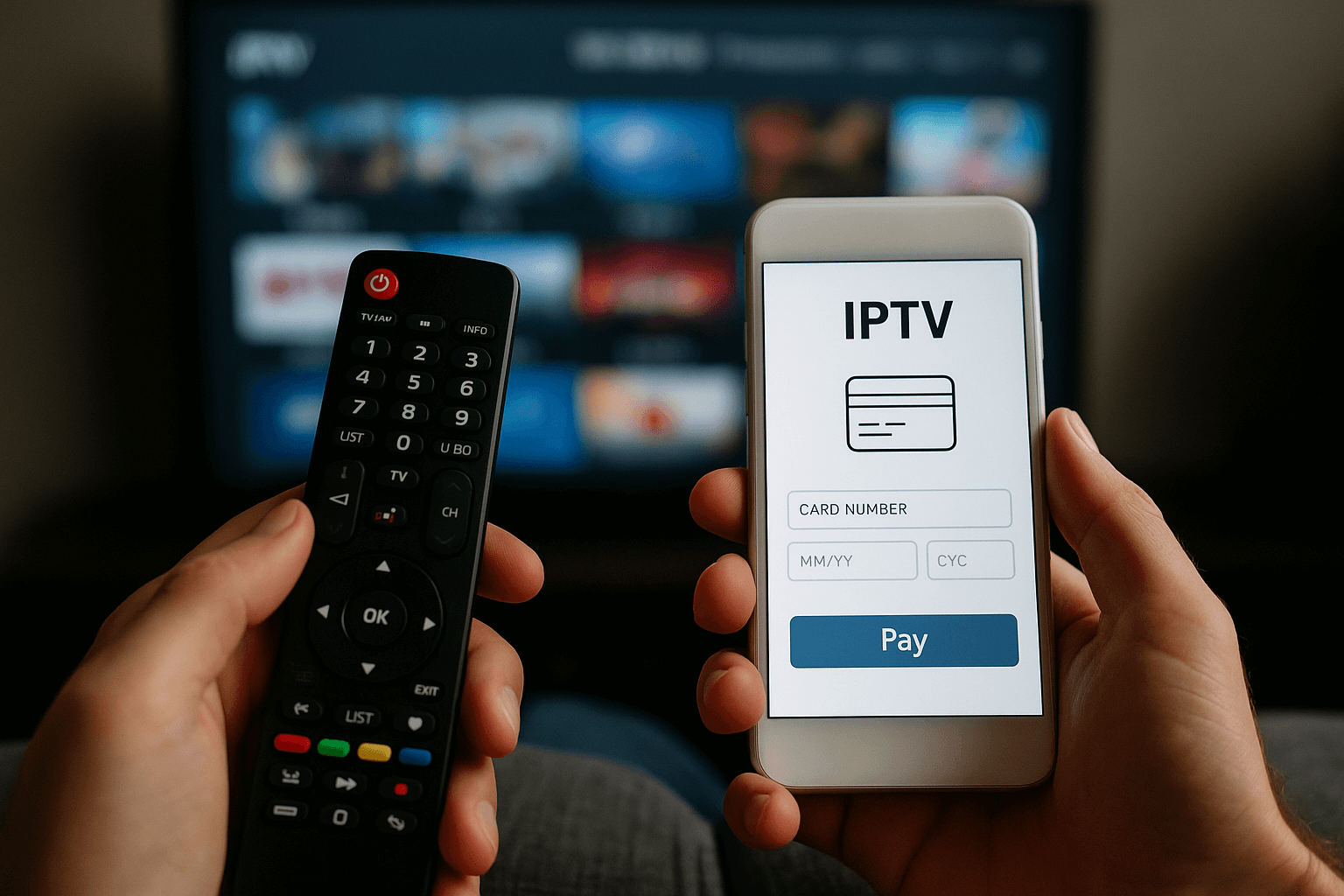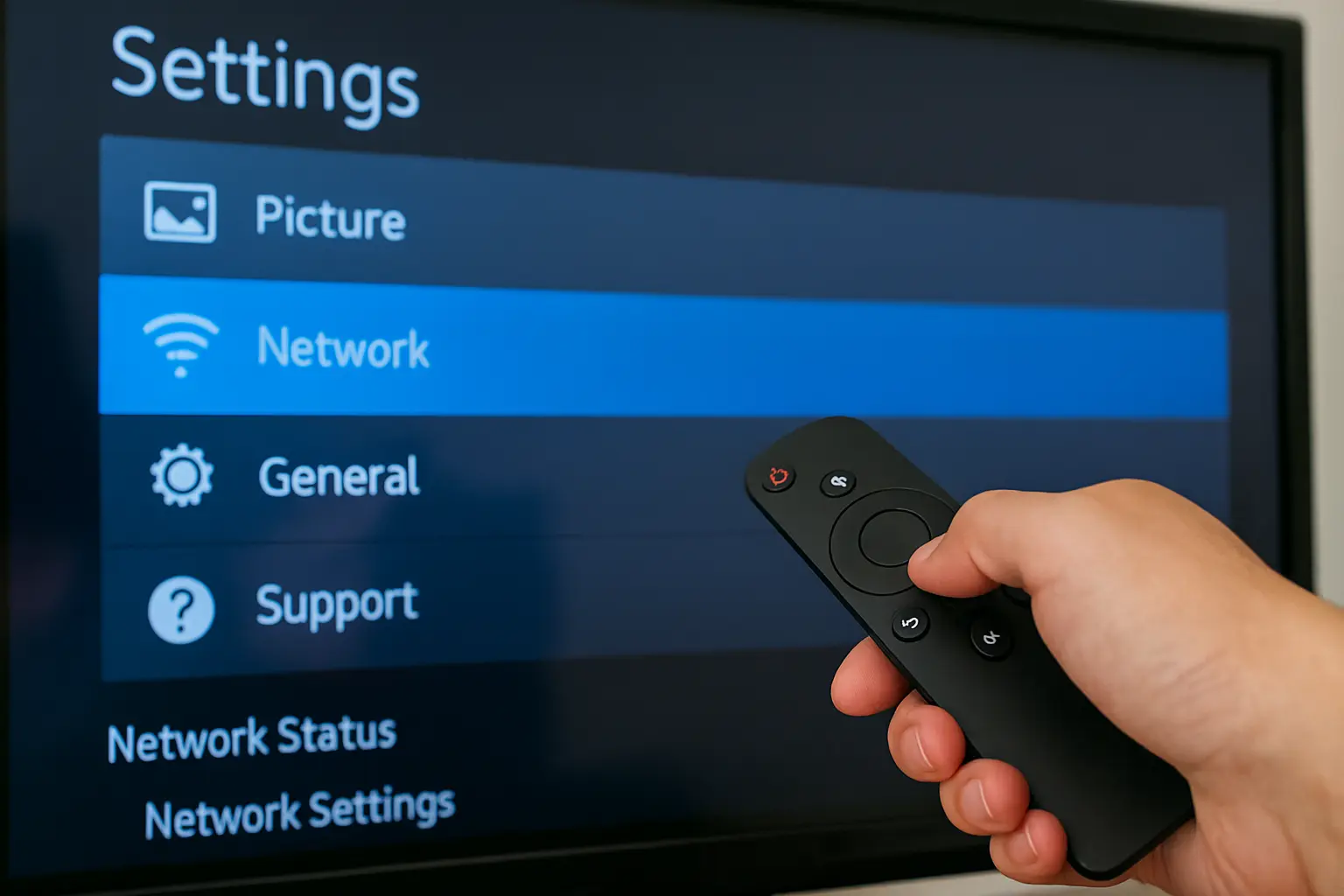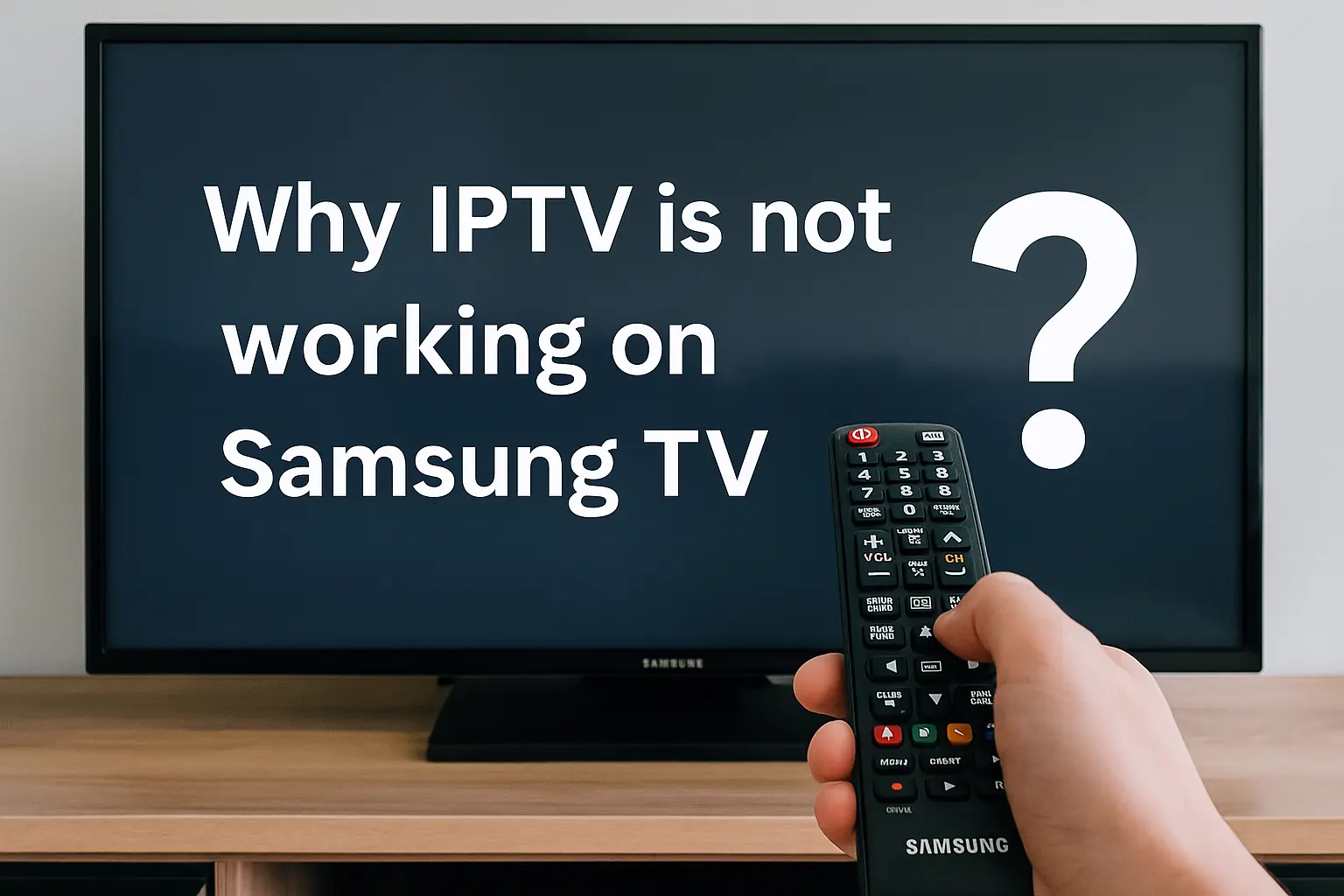You’re exposing your streaming activity to ISP monitoring and potential legal scrutiny when connecting to IPTV services without VPN the encryption protocols. Your ISP can track accessed streams, log timestamps, and implement bandwidth throttling through deep packet inspection.
A VPN establishes end-to-end encryption using AES-256 or WireGuard protocols, masking your IP address and preventing traffic analysis. While you’ll face 10-30% speed reduction on unoptimized servers, proper configuration protects against copyright enforcement agencies accessing your viewing metadata.
How IPTV Services Expose Your Online Activity ?
When you’re streaming through your IPTV subscription, your internet traffic flows through multiple network nodes without encryption, creating a detailed digital footprint that’s visible to anyone monitoring the connection.
Your ISPs can track every stream you access, logging timestamps, content sources, and bandwidth consumption patterns. Without secure encryption protocols, IPTV services expose your viewing habits to third-party surveillance and data harvesting operations.
You’re particularly vulnerable because unencrypted connections reveal your actual IP address to IPTV providers who may share logs with copyright enforcement agencies, exposing you to legal risks. ISPs also implement deep packet inspection to identify streaming protocols, often triggering bandwidth throttling during peak usage.
Key Benefits of Using a VPN With IPTV Streaming
When streaming IPTV, your connection and data can be exposed to several risks. Using a VPN helps protect your privacy, improve streaming quality, and bypass restrictions. Here are the key benefits explained point by point:
- End-to-end encryption – Encrypts your internet connection, protecting data packets from ISP throttling and deep packet inspection.
- Bypass geo-restrictions – VPN tunneling protocols and server obfuscation allow access to IPTV content from blocked regions.
- Prevent throttling – The encryption layer hides your streaming activity from ISPs, eliminating bandwidth throttling that lowers video quality.
- Maintain privacy – IP masking prevents IPTV providers or third parties from logging your viewing history and metadata.
- Stronger online security – Anonymization protects you from man-in-the-middle attacks and DNS hijacking attempts.
- Access more content – Encrypted tunnels keep you safe while enjoying international libraries and channels otherwise unavailable in your region.
Potential Risks and Drawbacks of VPN Usage for IPTV
While VPN encryption protocols enhance IPTV streaming security, you’ll encounter performance degradation through bandwidth overhead that manifests as 10-30% speed reduction on unoptimized servers.
Free VPN services amplify risks associated with using inadequate encryption standards, exposing you to cyber threats through compromised AES-128 implementations and outdated OpenVPN configurations. You’re vulnerable to data selling practices when providers monetize traffic logs and DNS queries.
Streaming performance issues include buffer underruns and packet loss, particularly when VPN servers lack dedicated bandwidth allocation. Compatibility issues arise with IPTV applications detecting VPN traffic through deep packet inspection, blocking access entirely.
Choosing the Right VPN Provider for Your IPTV Needs
| Factor | What to Look For | Why It Matters for IPTV | Examples / Notes |
| Provider Choice | Reliable VPNs with proven streaming unblocking | Reduces vulnerabilities and ensures access to IPTV content | NordVPN, ExpressVPN, Surfshark |
| Encryption & Protocols | AES-256, WireGuard, DNS leak protection | Protects data, prevents ISP throttling, and secures IPTV activities | Strong privacy + stable performance |
| Server Infrastructure | High server density across regions | Bypasses geo-restrictions and maintains speed during streaming | More servers = better reliability |
| Performance Metrics | Low latency, minimal packet loss, stable throughput | Ensures smooth playback without buffering or drops | Check user reviews for peak-time stats |
| Customer Support | 24/7 technical assistance | Quick resolution of connection or protocol issues | Live chat & fast response are essential |
| Advanced Features | Split-tunneling configurations | Isolates IPTV traffic, optimizes bandwidth use, keeps security intact | Useful when multitasking with other apps |
Setting Up and Optimizing Your VPN Connection for IPTV
Download and Install Your VPN App
Start by downloading the official app from your VPN provider. This ensures you get the latest version with full support for encryption, tunneling, and streaming optimizations.
Select the Right Server Location
Choose servers geographically close to your location to minimize latency. If your goal is to bypass IPTV geo-blocks, connect to servers in the regions where content is accessible.
Optimize Protocol Selection
Pick the most efficient tunneling protocol for IPTV. WireGuard generally delivers better throughput and lower latency compared to legacy OpenVPN, while still maintaining strong encryption and security.
Test and Identify Optimal Servers
Run systematic checks by connecting to different servers and measuring streaming performance. Look for stable throughput, minimal buffering, and reliable connections during peak viewing times.
Enable the Kill Switch
Activate your VPN’s kill switch feature. If your VPN connection drops, this function blocks all internet traffic instantly—preventing your ISP from detecting IPTV usage and protecting your privacy.
Frequently Asked Questions
Do You Really Need a VPN With IPTV?
You don’t technically require a VPN, but you’re exposing yourself to ISP throttling, DMCA notices, and packet inspection without one. Your unencrypted traffic reveals streaming protocols, making you vulnerable to bandwidth manipulation and potential legal action.
Will IPTV Work Without a VPN?
Yes, IPTV will work without a VPN through standard TCP/IP protocols, but you’ll face ISP throttling, DPI monitoring, and potential DMCA violations. Your unencrypted traffic remains visible, exposing streaming habits and risking bandwidth management interventions.
Is IPTV Legal in the United States?
Yes, you’re IPTV is legally permitted to use it, that’re properly licensed. However, you’ll face copyright violations and potential criminal charges if you’re streaming unlicensed content through unauthorized IPTV providers without proper licensing agreements.
What Happens if I Don’t Use a VPN?
You’ll face ISP throttling, exposed IP addresses during streaming, and unencrypted data packets vulnerable to man-in-the-middle attacks. Your ISP can log viewing habits, potentially share data with third parties, and you’re blocked from geo-restricted content.

